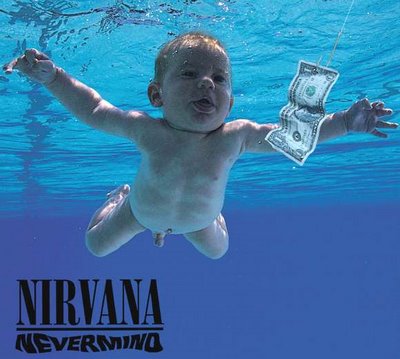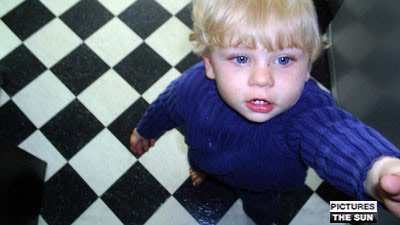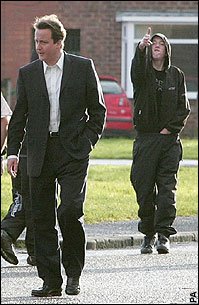Scum-watch: Going "soft" on perverts.
 If there was ever a chance that Dominic Mohan would be less overbearing compared to his predecessor when it comes to the protection of children, then that's gone out the window with today's "exclusive" claim that a "[Q]uarter of pervs go free", as alluded to on the front page. The actual article, by Brian Flynn, has to be one of the least illuminating and most lazy examples of supposed investigative journalism in quite some time:
If there was ever a chance that Dominic Mohan would be less overbearing compared to his predecessor when it comes to the protection of children, then that's gone out the window with today's "exclusive" claim that a "[Q]uarter of pervs go free", as alluded to on the front page. The actual article, by Brian Flynn, has to be one of the least illuminating and most lazy examples of supposed investigative journalism in quite some time:THE Sun can today reveal how Britain's soft justice system allows hundreds of child sex fiends to escape court action.
In a special investigation, we found more than a quarter of child abusers are let off with a caution by cops.
The shock figures emerged in responses by 33 police forces to Freedom of Information demands by The Sun.
This then is a method which has been previously pioneered by the mid-market tabloids, where they submit FoI requests to the country's police forces, not all of which reply, with an article to write already in mind. Both the Express and the Mail have used this to supposedly show how many "foreigners" are either committing murders or rapes in this country, and has been dealt with in the past by 5CC. Those requests though have been much narrower in scope to this one, and also far better defined and explained. The Sun's request, presumably, as it is never properly outlined, is for the numbers of individuals who have been charged and cautioned with "sexual and physical abuse offences against kids", their best description, not mine. This understandably covers a whole multitude of sins, some, but which by no means all, are covered in this document explaining the changes which came in under the Sexual Offences Act 2003.
To start off with, only 33 forces have responded when there are 44 in total, so the statistics are by no means complete. Here though are the shock figures:
In total, 8,043 people who committed sexual and physical abuse offences against kids were charged in the year to April, while 2,764 were given a caution.
Just to illustrate that these 2,764 given a caution hardly cover the most serious offences, the paper then gives the only breakdown in actual offences in the entire piece:
Even beasts who rape under-age children can get just a ticking off. The statistics included 20 who raped girls under 16 and eight who attacked young boys.
So only 28 who admitted to rape were given a caution. For someone to only be given a caution for such a serious crime, especially against a child, there has to be significant mitigating circumstances. One of these is explained in the above document on the Sexual Offences Act 2003: since the act was passed, anyone under 12, regardless of whether they consented to sex or not, is considered to have been raped if they take part in any sexual activity involving penetration. This still applies even if the person they have sex with is 13 or below the age of consent themselves. Since it's hardly in the public interest to prosecute to the full extent of the law young children for such serious offences, a caution will often be the best option. The changes in the law were additionally not meant to be used when, for example, a 15-year-old consents to sex with a 17-year-old, unless there was abuse or exploitation involved, but this is not always the case, hence a caution will again sometimes be given. Other examples of where a caution will be considered the better option will be where the offence involved a member of the family of the victim, which the SOA expanded to include step-family members and others. The Sun also adds its own explanations as to why a caution rather than a prosecution will sometimes be best option:
Legal sources said reasons for the caution option include victims not wanting to go through a court process, perhaps if the attacker was a family member.
Evidence could also be flimsy, meaning a fiend could get off whereas under a caution guilt is assured. But one source said: "It must always be a last option."
Well, precisely, and the Sun has provided no evidence whatsoever that suggests this isn't the case. All it has done is present some out of context figures with no information whatsoever as to what offences have actually been committed, which would help us to ascertain whether a caution is a reasonable end result to the offence or not. It's also provided no comparison figures as to whether the number of cautions has actually gone up or down year on year, which would further help to show whether or not this is a change in policy and genuine further evidence of it being a mockery of Labour "being tough on crime". In short, it's a typical piece of tabloid journalism, so flimsy that as soon as you look at it in any detail you notice that it's coming apart at the seams. It's an example of doing the very bare minimum as an attempt to prove an already held hypothesis.
This is without even considering the Sun's leader column on the subject:
SHOCKING figures show one in four proven child abusers - including child rapists -- get off with a caution. That means almost 3,000 known paedophiles are on the loose - many of them likely to re-offend.
The Sun presents nothing whatsoever that justifies calling those given a caution paedophiles, and it also hasn't the slightest basis for claiming that "many of them" are likely to re-offend. This is just base scaremongering using the terms which are most likely to cause fear in both children and adults.
Raping girls under 16 - or even gang-raping a boy - goes virtually unpunished.
Except the article shows that only 28 cases of rape out of a total of 10,807 offences were concluded with a caution - we can't even tell how many cases of rape were prosecuted as the Sun doesn't provide us with those figures. That's hardly going virtually unpunished. The Sun does however have an explanation:
But there is a culture of idle incompetence at the very top - with both politicians and police chiefs. The message from on high is: Jails are full so turn a blind eye.
This is abject nonsense. The jails being full has very little to no influence whatsoever on the CPS deciding who to prosecute and who to not. The courts and judges may indeed be influenced by lack of space when it comes to passing sentence, but the CPS simply decides on the merits and circumstances of the case. The possibility of prison doesn't enter into it.
This stunning failure of justice is a crime in itself.
And innocent children pay the price.
As will innocent children and adults who believe the fearmongering which the Sun fails to even begin to back up.
Labels: abuses by tabloids, bullshit, child abuse, crime, freedom of information, paedophile hysteria, paedophilia, Scum-watch, Sun-watch





